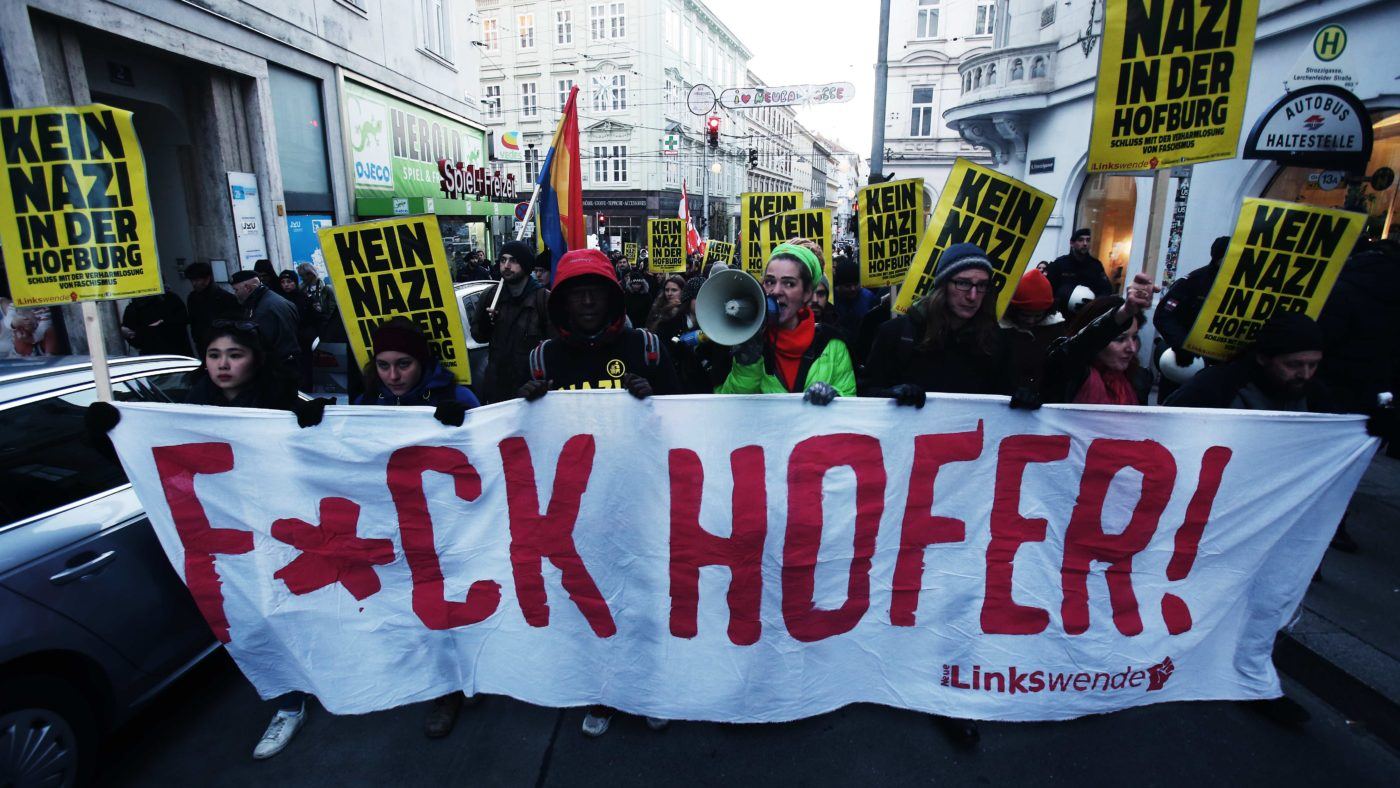Across European capitals, there was a sigh of relief when Norbert Hofer conceded his defeat to Alexander Van der Bellen in Austria’s presidential election on Sunday. No wonder. This was not an ordinary election.
If he had been successful – as some polls suggested and betting markets predicted – Mr Hofer would have been the first far-Right candidate to become a European head of state since the Second World War. In Austria no less.
The term far Right is used here deliberately, and not as a cheap way of smearing a political opponent.
Founded in the 1950s, the Austrian Freedom Party (FPÖ) has a troubling history that cannot be extricated from Austria’s ambiguous attitude towards its wartime past and the country’s incomplete de-nazification.
While Mr Hofer’s party has always reflected a few different ideological outlooks, its first leader, Anton Reinthaller, was a former SS Brigadeführer (Generalmajor), succeeded in 1958 by Friedrich Peter, formerly an SS Obersturmbannführer (lieutenant colonel) with a unit active in massacres of Jews in Eastern Europe.
The leader who succeeded in bringing the party to national and later international prominence in the 1990s and the 2000s was the charismatic governor of the region of Carinthia, Jörg Haider, who died in a car accident in 2008.
He liked to praise the Third Reich’s labour policies and once stated that Waffen SS veterans deserved “every honour and recognition”.
True, the Austrian president’s function is largely ceremonial, although the constitution enables him, in principle, to dissolve the parliament.
Mr Hofer had explicitly promised to push for an early parliamentary election, in which the FPÖ was likely to do well.
While an FPÖ-dominated government would not necessarily mean Austria’s exit from the European Union, (EU) the party’s uncompromising platform of “Austria First” (a slogan coined by Mr Haider in the 1990s) would make it more difficult for the EU to reach joint decisions on issues such as common asylum policy, sanctions against Russia, or common defence policy.
Without such agreements, Europe could easily be overrun by an uncontrolled migratory waves, like in 2015, and fall prey to its aggressive neighbours – especially if president-elect Trump stays on his present course towards weakening NATO.
FPÖ has never hidden its close ties to Russia. Back in 2007, as governor of Carinthia, Mr Haider received bribes in exchange for a promise to facilitate the naturalisation process of two Russian oligarchs, Artem Bikov and Alexey Bobrov. The party supported Russia’s annexation of Crimea and even sent “election observers” there when the Kremlin organised its shambolic referendum in March 2014.
So the current respite is temporary. Austria’s legislative election is scheduled for 2018. By then, it is unlikely that the grievances that have led Austrians to flock behind FPÖ will disappear. The party has, after all, seen a steady increase in support since Mr Haider’s days, boosted further by the EU’s refugee crisis in 2015. And nor does one presidential election in a country of eight million reverse a decade of Europe’s dysfunctions and increasingly radicalised politics.
One grievance playing into the hands of Austria’s far-Right is obvious. Since the war, every government involved either the Social Democrats (SPÖ) or the People’s Party (ÖVP) – and more often than not a coalition of both. This effective duopoly has created a system of political patronage and a vast majority of public-sector positions are distributed on the basis of political loyalty, not merit; this has contributed to the sense that voters do not really face a choice when deciding between the country’s two leading parties.
Breaking with this tradition is necessary if the far Right is to be kept at bay.
The political instincts of Mr Van der Bellen place him firmly on the political Left. And although he is an economist, he is as far as one can be from being an “Austrian economist” in the tradition of Friedrich von Hayek and Ludwig von Mises.
However, as an outsider supported by a broad coalition of political forces across the political spectrum, he has provided an example that can demonstrate to people across the Western world that there are other, more benign ways of challenging the status quo than through a revival of nativism, protectionism, and isolationism.
Here is hoping that others will follow.


